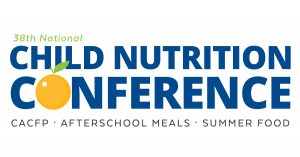Learning Center
Finding the Leader in You ($)
Are you ready to become a successful leader? Explore key concepts and strategies to develop leadership skills and qualities within yourself. Identify and recognize your personal leadership strengths and areas for growth to unlock your full potential.
Read MoreBetween the Bread: Nutrition Packed Sandwiches ($)
Whether you’re gearing up for field trips or planning outdoor meal adventures, sandwiches are a summertime’s best friend. Say hello to creative combinations of textures, colors and flavors all nestled between two slices of bread. We’ll explore how to make this mealtime classic into another #CACFPCreditable addition to your menu, just in time for summer!
Read MoreProvolone, Mozzarella, and Cheddar, Oh My! Crediting Cheese in the CACFP ($)
Cheese is more than just a delicious addition to meals; it plays a crucial role in meeting nutritional requirements. However, the variety of cheeses available, including the plant-based options, can make measurement and crediting a challenging task. Learn to navigate how cheese is creditable in the CACFP, understand the rules and regulations, and accurately measure the different types of cheeses in CACFP settings. Discover cheesy tips and new recipes to add to your menu.
Read MoreMarketing Your Business: Marketing Yourself ($)
By positioning yourself as a subject matter expert in your field, you are also elevating your organization, which can give you the advantage when growing your program. Learn how to start your journey with easy steps you can implement immediately or find out how to take the next step to marketing yourself.
Read MoreAge-Defying Flavors: Recipes for Older Adults
May is Older Americans Month and we’re celebrating the invaluable contributions of the older adult members within our community. Join us to discover how to adapt CACFP recipes to align with the changing needs and tastes of older adults. Gain insights into modifying recipes to cater to their distinct taste profiles and nutritional needs, ensuring meals that are both satisfying and health-supportive for our revered community members.
Read MoreNavigating Special Diets ($)
Allergies, intolerances, and sensitivities. What is the difference between the three? Learn how to navigate proper documentation, communication, and compliance to foster a safe environment for children with special dietary needs and requests.
Read MoreGrowing Healthy Foundations: Farm to ECE Made Easy ($)
Farm to Early Care and Education (ECE) is not limited to traditional farming practices but includes everyday tasks that contribute to children’s learning and development. Explore how simple actions, like buying local produce and promoting healthy eating, align with learning standards for children aged 0-5. Discover how you may already be integrating Farm to ECE into your daily routine.
Read MoreCompliance with Confidence: Sponsor Monitoring & Oversight ($)
Efficient program monitoring and oversight are essential in the CACFP and for ensuring the success of your organization. Discover best practices and opportunities of how to conduct reviews that not only meet program requirements, but also support and lift up the child care provider. Expand your understanding of effective oversight and ensure program compliance with confidence. 1. Identify CACFP monitoring requirements. 2. Explore why oversight matters and how it impacts your program. 3. Provide constructive technical assistance at review.
Read MoreChildhood Obesity Prevention & Early Nutrition Education ($)
Receiving nutritious meals early in life, as well as being physically active, is critical to the establishment of positive lifelong habits. Discover how teaching children about healthy eating from a young age can positively impact their cognitive, emotional, and physical development to help prevent childhood obesity.
Read MoreFamily Style Dining: Conversations Around the Table
Encourage young ones to share their thoughts and stories as they gather around the dining table- family-style. This interactive experience fosters not only healthy eating habits but also helps them learn the art of conversation, where little voices can be heard and cherished. Receive tips on how to make family-style dining kid-friendly and discover resources to start conversing with children at the table!
Read More


